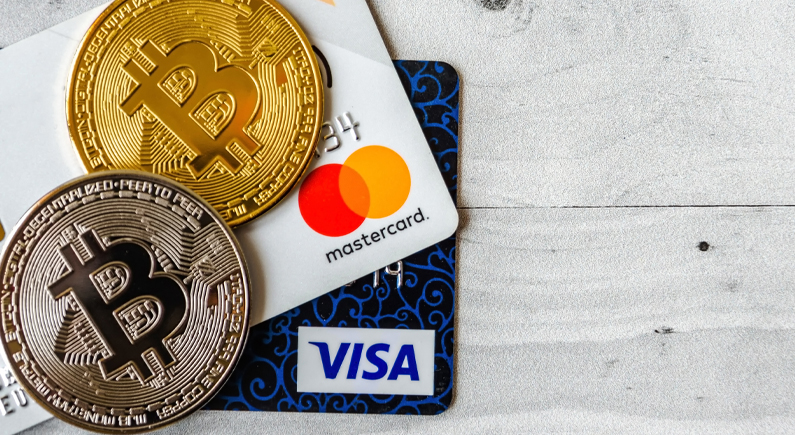Innovator’s dilemma: Mastercard chooses to become a dinosaur?

Earlier today Reuters reported that Visa and Mastercard are apparently pausing their respective “crypto pushes” due to regulatory fears and uncertainty which looms over the industry.
The stream of epic collapses in 2022 were cited as reasons for the pause. For Visa, the source was someone who preferred to remain anonymous – and was later refuted by Visa’s head of crypto. But when it comes to Mastercard, it appears the reporters managed to get a spokesperson to comment on record about the rumours.
One spokesperson from the world’s largest payment processor, Visa, said: “recent high-profile failures in the crypto sector are an important reminder that we have a long way to go before crypto becomes a part of mainstream payments and financial services.”
He went on to confuse readers by adding that this statement doesn’t change the company’s crypto strategy and focus. Go figure.
Mastercard’s spokesperson provided more clarity, though not the optimistic kind. The spokesperson said: “our efforts continue to focus on the underlying blockchain technology and how that can be applied to help address current pain points and build more efficient systems.”
Not only did the Mastercard spokesperson confirm the rumours, but effectively inferred that the firm has slammed the breaks for anything crypto-related. Instead, they rolled out an old marketing trope from 2015, which any company should be embarrassed about in 2023. “We continue to focus on the underlying blockchain technology,” they said.
This simple one-liner speaks volumes. Mastercard, an incumbent payments firm has fallen victim to the innovator’s dilemma. The $340 billion payments titan appears steadfast in its decision to simply stand by and watch as its business gets consumed by Bitcoin, Litecoin and Ethereum development stacks.
When it comes to Bitcoin, the primary dominant cryptocurrency network has given the world a closed-loop payments and settlements network which can easily do what Mastercard does, but with the added benefit that it’s all peer-to-peer. The lightning network also allows businesses to pay each other instantly at lower costs, too. The so-called “blockchain technology” one-liner Mastercard alluded to is not so much innovative as it is a term whose marketing capital has well and truly expired.
There is no “blockchain technology” that Mastercard could build, acquire, or leverage that will solve the issues they exist to solve better than current offerings in crypto – with proof-of-work protocols having a massive advantage over proof-of-stake ‘blockchains’. After all, the ultimate reality of proof-of-stake blockchains like Solana is that it is a company that can and will be regulated. The whole point of ‘a blockchain’ is to render it decentralised and maximally resistant to regulatory capture. If the trade-off means creating a company that can be targeted by governments, there is no innovation.
So if Mastercard is keen on becoming a future case study, quoted in Universities as part of a long list of firms who got consumed by the innovator’s dilemma, then it’s on the right track. But if it wants to remain relevant, and chooses to move away from this vision of becoming a legacy institution, then they should start aggressively working to integrate LNP/BP as well as Litecoin’s MWEB stack into its business.
Then again, perhaps you really can’t teach an old dog new tricks.
Mastercard’s reluctance to take the plunge into the proof-of-work monetary stack means it’s open season for Bitcoin startup companies. There haven’t been many opportunities to dethrone payment processors over the last fifty-odd years, but now, there is a golden opportunity laying in an open field that remains largely untapped.
Still, Visa’s head of crypto came out to deny claims from the Reuters report, suggesting there might be conflict within the payment firm’s ranks.
2/ We continue to partner with crypto companies to improve fiat on and off ramps as well as progress on our product roadmap to build new products that can facilitate stablecoin payments in a secure, compliant, and convenient way.
— Cuy Sheffield (@cuysheffield) February 28, 2023
That said, Visa is more focused on stablecoins than it is on Bitcoin, which is to say that it’s only looking two steps ahead instead of three, four or five steps down the line. But that’s still better than a rank-and-file dissociation from the crypto space. Mastercard’s approach means it is signing its own death warrant.
Here’s to hoping that Visa has also implemented Bitcoin and lightning plan to go along with its stablecoin policy. The main issue is missing the forest for the trees. If they focus too much on stablecoins, they will be embedding costs into a product that will eventually be phased out as proof-of-work technology improves and gains traction. The disruptors of today’s monetary payment system are fundamental shifts, not just a surface-level change in payment rails.









